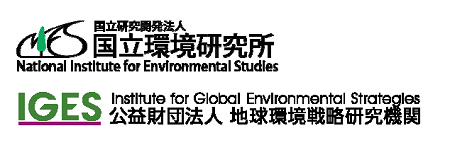
Publication on “Mechanical and Biological Treatment (MBT) Guideline” for improving municipal solid waste management in developing countries
|
October 26, 2020 |
| "MBT Guidelines" for the introduction of Mechanical Biological Treatment (MBT) technology for the reasonable and appropriate treatment of waste in developing countries is published and made it available on the web. It was supported by the United Nations Environment Programme International Environmental Technology Centre. |
1.MBT guideline
In urban cities of developing countries, the municipal waste is generally disposed of un-engineered dumpsites, which may have an impact on the living environment, such as water pollution and infectious diseases, and may have an impact on the global environment due to greenhouse gas emissions (GHGs). Besides, the disposal of waste with its resource and energy value should be also in need of improvement in terms of resource efficiency. Mechanical and biological treatment (MBT) technology has been attracting a lot of attention as a technology that can contribute to both reductions of environmental impact and improvement of resource efficiency through energy recovery. MBT technology is also expected to contribute to waste treatment in developing countries because of its low-cost operation and the possibility of localization. MBT is not just a waste treatment technology, but an MBT project that is affected by the social situations, such as waste segregation and collection systems, the informal resource recovery, and the industrial energy demand. Therefore, it is necessary to collect and organize the information that is essential for the implementation and proper operation of the project in accordance with the local urban planning and industrial conditions.
The MBT guideline was prepared by the researchers of the National Institute for Environmental Studies (NIES) and the Institute for Global Environmental Strategies (IGES) to support the policy-makers in developing countries, who are not familiar with MBT technologies and have little experience in project management, to provide materials to evaluate the feasibility of project implementation.
The MBT guideline introduces the technical features of MBT and the social, institutional, and financial background required for the project implementation. It also presents the environmental benefits, resource and energy benefits, and financial improvement potential. It provides insight into the complicated relationship between the nature of the waste, the value of the resources recovered and the solid fuels, the appropriate management of the debris, and other external limiting factors in the local society and the market.
This guideline is part of the guideline series that has been developed by the United Nations Environment Programme (UNEP) International Environmental Technology Centre (IETC) and IGES Centre Collaborating with UNEP on Environmental Technologies (CCET) in collaboration with NIES and the Japan Society of Material Cycles and Waste Management (JSMCWM).

2.Contact information
【MBT guideline】
Dr. Tomonori Ishigaki, NIES
【CCET guideline series on intermediate municipal solid waste treatment technologies】
Miwa Tatsuno, CCET
- What's New
- What's New 2024
- What's New 2023
- What's New 2022
- What's New 2021
- What's New 2020
- What's New 2019
- What's New 2018
- What's New 2017
- What's New 2016
- What's New 2015
- What's New 2014
- What's New 2013
- What's New 2012
- What's New 2011
- What's New 2010
- What's New 2009
- What's New 2008
- What's New 2007
- What's New 2006
- What's New 2005
- What's New 2004
- What's New 2003
- What's New 2002
- Event Information
- Visit NIES